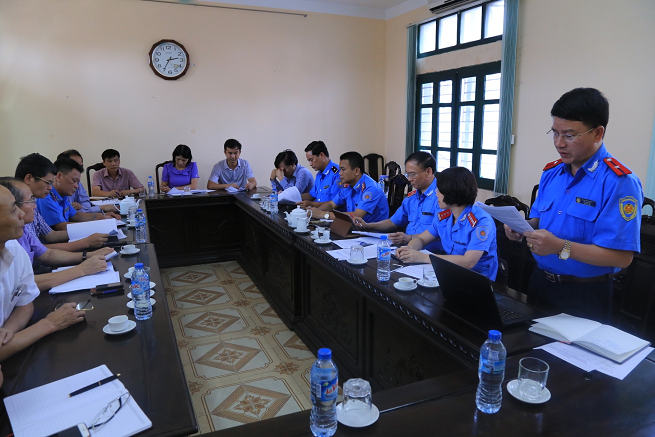Law on the Organization of Local Government, effective from January 01, 2016, has concretized the provisions of the 2013 Constitution and the policies and orientations of the Communist Party regarding local government; at the same time, it inherits reasonable contents and amends and supplements the inadequacies and obstacles encountered during the 12 years of implementing the Law on the Organization of the People's Councils and the People's Committees 2003.
Renovating the organization and activities of local governments; enhancing the operational quality of the People's Council and the People's Committee at all levels, ensuring the autonomy and self-responsibility of local governments is an urgent issue for Vietnam. Such autonomy must first be guaranteed institutionally; without institutional guarantees, the ability for self-governance and self-responsibility of local governments will be very limited and difficult to ensure success.
Regarding decentralization, delegation, autonomy, and self-responsibility, the Local Government Organization Law 2015 has not yet fully reflected the spirit of the 2013 Constitution, only prescribing principles similar to those of the 2013 Constitution without concrete regulations.
The 2013 Constitution stipulates that local governments consist of the People's Council and the People's Committee in administrative units, ensuring the implementation of the Constitution and laws; deciding on local issues as prescribed by law; being subject to inspection and supervision by higher authorities, based on the delineation of authority between the central and local levels; in necessary cases, local governments are assigned to perform some tasks of higher-tier state agencies with guaranteed conditions for the task's execution. It can be seen that:
- Local governments decide on local issues (self-determination).- They can execute higher-tier powers (central powers over provincial levels and higher-tier powers over district and commune levels) if the conditions for execution are met.
The issue of local autonomy and self-responsibility (in certain types of administrative-territorial units) is a new and important viewpoint that recent Communist Party Congresses have affirmed. "Autonomy and self-responsibility" is a form of organizing local government in commonly widespread territorial units worldwide. It is a policy of local self-governance, the highest manifestation of the central-local decentralization and delegation process. This model is appropriately built, operating independently and proactively based on law without interference from higher levels. In this model, local people are the most important entity, exercising their power directly or through governmental structures.
The Local Government Organization Law 2015 only generically prescribes principles in Articles 11 (Delineation of local government authority), 12 (Delegation to local government), 13 (Decentralization to local government), and 14 (Authorization to local administrative bodies). The necessary details to address issues of local autonomy and self-responsibility include:
- Prescribing the types of territorial units for which power is delegated or authorized, the levels only subject to decentralization; identifying levels or units granted separate legal entity status;- Autonomy over financial matters;- Separate authority and the extent of participation in the countrywide authority;- Establishing a self-governance model for the local government;- Mechanisms for central and higher-tier control over self-governing units...
The Local Government Organization Law needs to specifically prescribe the aforementioned issues for local autonomy and self-responsibility to be practically realized.
Source: Local Government Organization Law 2015 - Issues Requiring Further Improvement - Associate Professor-Doctor Bui Xuan Duc (Journal of Legal Science No. 05/2016)
 Article table of contents
Article table of contents

![[InfoGraphic] 6 forms of discipline for officials and public employees under Decree 71/2016/ND-CP](https://cdn.lawnet.vn//uploads/NewsThumbnail/2016/07/12/1319291-01.png)




.Medium.png)
.Medium.png)
.Medium.png)
.Medium.png)
